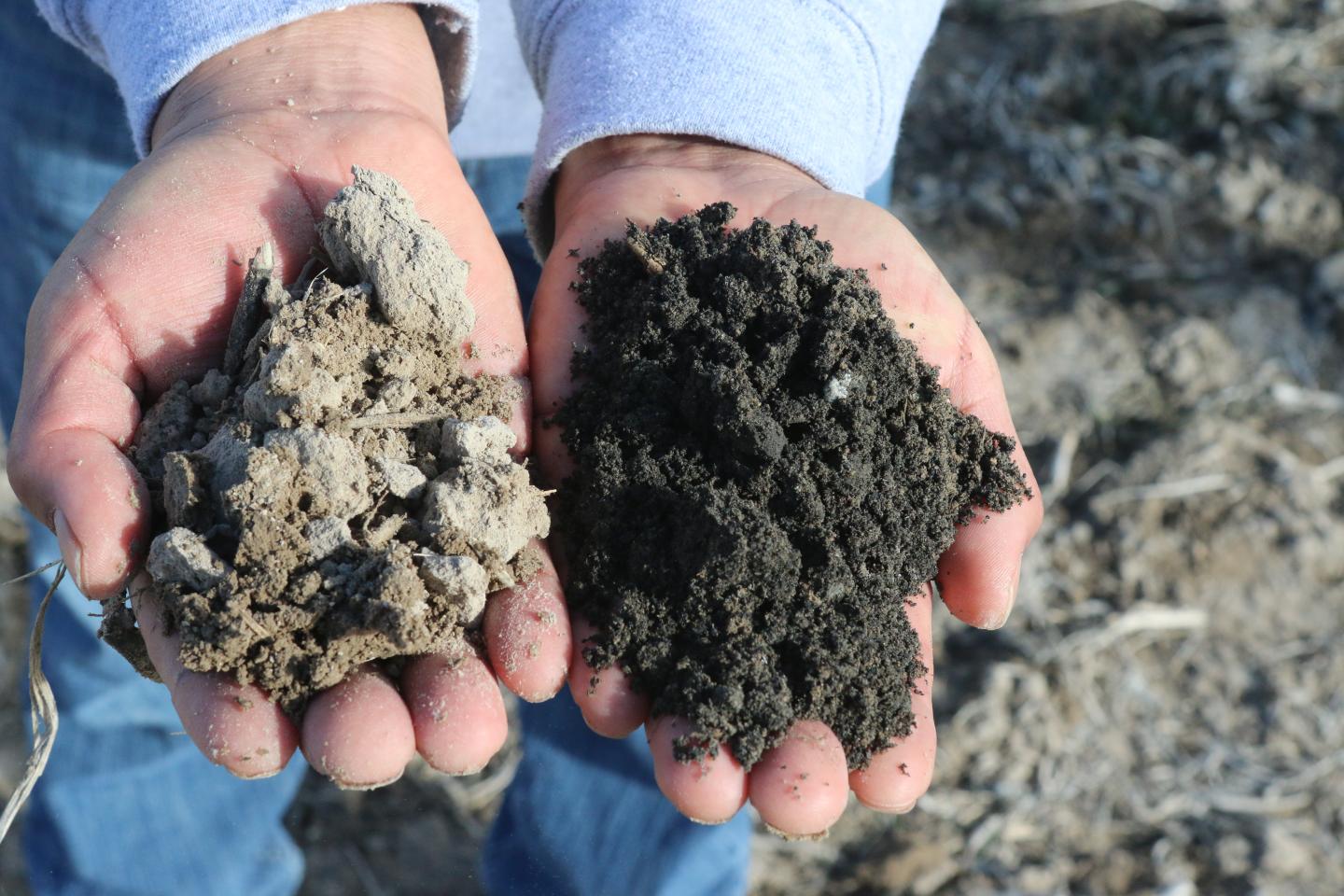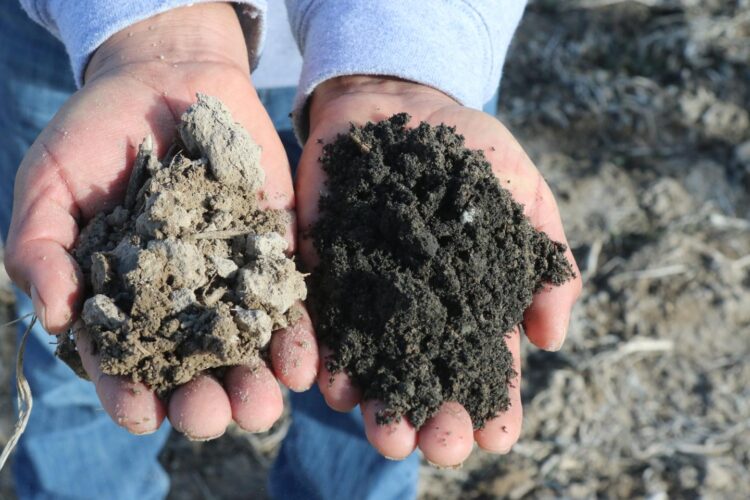
Credit: Photo courtesy of Michael Kaiser.
Intensively tilled soils have lost up to 50% of their original C with the attendant degradation in soil properties and productivity. Restoring the C lost with current conservation practices (i.e., no-till, cover crops) often takes decades. Applying high-C coal combustion residue from sugar beet (Beta vulgaris L.) processing factories, known as char, may rapidly restore soil C and productivity in degraded croplands.
In a recent Journal of Environmental Quality article, researchers in the Nebraska High Plains evaluated soil and crop response to char containing about 30% C applied at different rates ranging from 0 to 67.3 Mg ha-1 to two relatively low C soils (
Findings suggest that this industrial by-product can be a potential strategy to rapidly restore C in degraded agricultural soils, but additional long-term (> 2 years) research with char application exceeding 67.3 Mg ha-1 under different soils and climates is needed to fully understand how char impacts soil properties and crop yields.
###
Adapted from Blanco?Canqui, H, Kaiser, M, Hergert, GW, et al. Can char carbon enhance soil properties and crop yields in low-carbon soils J. Environ. Qual 2020; 1- 13.
Media Contact
Rachel Schutte
[email protected]
Related Journal Article
http://dx.





